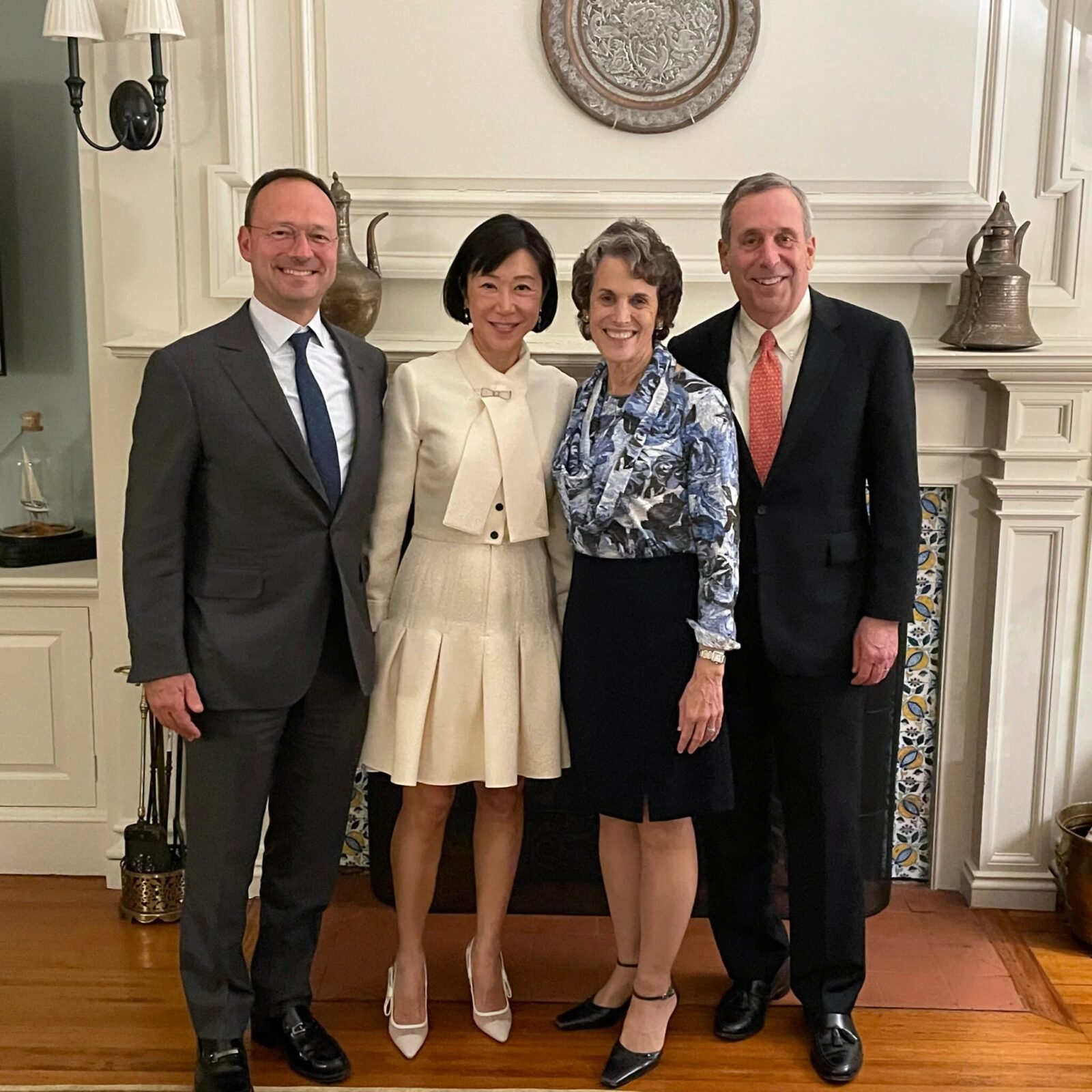Salata family donates $200 million toward Climate and Sustainability at Harvard

The creation of the Salata Institute for Climate and Sustainability has been announced by Harvard University, an innovative institution that will focus on advancing and catalyzing research programs across Harvard Schools, enabling comprehensive cross-University education in climate and environmental studies.
The Salata Institute will build upon decades of work at Harvard and willlaunch in the fall of 2022. The Institute will be led by Jim Stock, the Vice Provost for Climate and Sustainability, who has a mission to develop and promote durable, effective, and equitable solutions to the current climate-change challenges confronting humanity. Thanks to Melanie and Jean Eric Salata’s $200 million endowment to Harvard University, this project is made possible. Jean Salata is the chief executive and founding partner of Baring Private Equity Asia who recently announced its merger with EQT, a global private equity firm.
“The Salata Institute for Climate and Sustainability at Harvard represents a once-in-a-generation opportunity to tackle the climate crisis by leveraging and unifying Harvard’s strengths. It will draw together expertise from across the University in ways we’ve only just begun to imagine,” said President Larry Bacow. “Melanie and Jean’s extraordinary generosity is matched only by their passionate belief that the time is now for bold action that engages the public. We are grateful beyond measure for their vision and for their support as we undertake critical work on behalf of humanity — and for the sake of our planet.”
The Institute will be set apart for its pioneering and trailblazing approach to climate change that focuses on growing and galvanizing the network of climate-focused scholars at Harvard to create new pathways for student education, participation in the development of climate and sustainability solutions, and adding critical focus to significant, real-world progress with near- and long-term impact. The Salata Institute will also be a connection point for current climate-related programs and initiatives at the University, as well as a hub that connects Harvard students with alumni working in climate and sustainability.
“Climate change is one of the most pressing issues of our time. It is a crisis whose impact will affect our children and many generations to come, and we have a responsibility to them to do everything we can to address it,” the Salatas said. “Through initiatives like the one we are announcing today, and many others like it globally, we can harness the power of the world’s best researchers and most talented policy and business leaders to create a more sustainable future for all of us.”
The Institution will encourage and enhance research on climate, sustainability, and the transition to low- and zero- carbon energy; equip students at Harvard to becoming the next generation of leaders and pioneers in the field; and recruit and support members of the faculty with expertise that support the discovery of solutions to the complex challenges brought about by climate change.
“This is a momentous step for Harvard’s efforts in climate and sustainability,” said Stock. “The Salata Institute will be the key institutional structure driving the University’s goals in climate: to increase research, education, and public engagement that make a real difference in tackling the climate crisis. Climate change has so many facets, from ever-worsening physical consequences, to harms to human health and ecosystems, to the economics, law, politics, and engineering of the enormous but necessary transition to a net-zero-emissions economy, to the changes to society wrought by climate change and the energy transition. With its current strengths, international convening power, and great potential, Harvard has a unique responsibility to lead in addressing these challenges. The Salata Institute will empower Harvard to get on with this difficult but essential work.”
The new faculty-led Climate Research Clusters Program will be one of the Institute’s pivotal research enterprises and will develop multidisciplinary collaborations with real-world potential for change. With 41 concept proposals from researchers across the University the first round of the program is currently underway. Final selection is expected in the fall with projects launching in January 2023.
On top of the new Clusters program, researchers not yet working on climate but wanting to expand their focus and studies to this area will receive small grants provided by the Institution, as well as those working on climate aiming to explore new ideas. Larger project grants will continue to be available from the Climate Change Solutions Fund, an organization that has been highly successful in bringing grand ideas to fruition, established in 2014. The Salata Institute research efforts will partner with external engagement of climate leaders from public, private, and nonprofit sectors in order to guarantee that the world class research on climate change is translated into actionable solutions.
“The Salata Institute will bring together the diverse intellectual strengths of all parts of the University with the deep and widely shared passion to address the crisis in climate and sustainability,” said Alan Garber, Harvard University’s Provost. “We cannot solve the climate crisis on our own, but we expect our educational and research efforts to produce deep and lasting contributions to the broader effort, in which universities will play leading roles. Harvard can do nothing less than set the example for effective leadership in addressing all aspects of climate change. This gift will enable us to do so.”
A crucial element at the Salata Institute will be to support the expansion of climate education opportunities on the Harvard campus and beyond. Efforts will include supporting the schools course development and providing new opportunities for students interested in exploring careers in climate and sustainability, for example, by expanding student internship and research possibilities, augmenting opportunities currently available through the Harvard University Center for the Environment.
“The challenges of the climate crisis are immense and urgent,” said Stock. “I am thrilled, and deeply grateful, that Jean and Melanie have turned to Harvard to help make this lasting commitment at a time when the world needs it most.”

